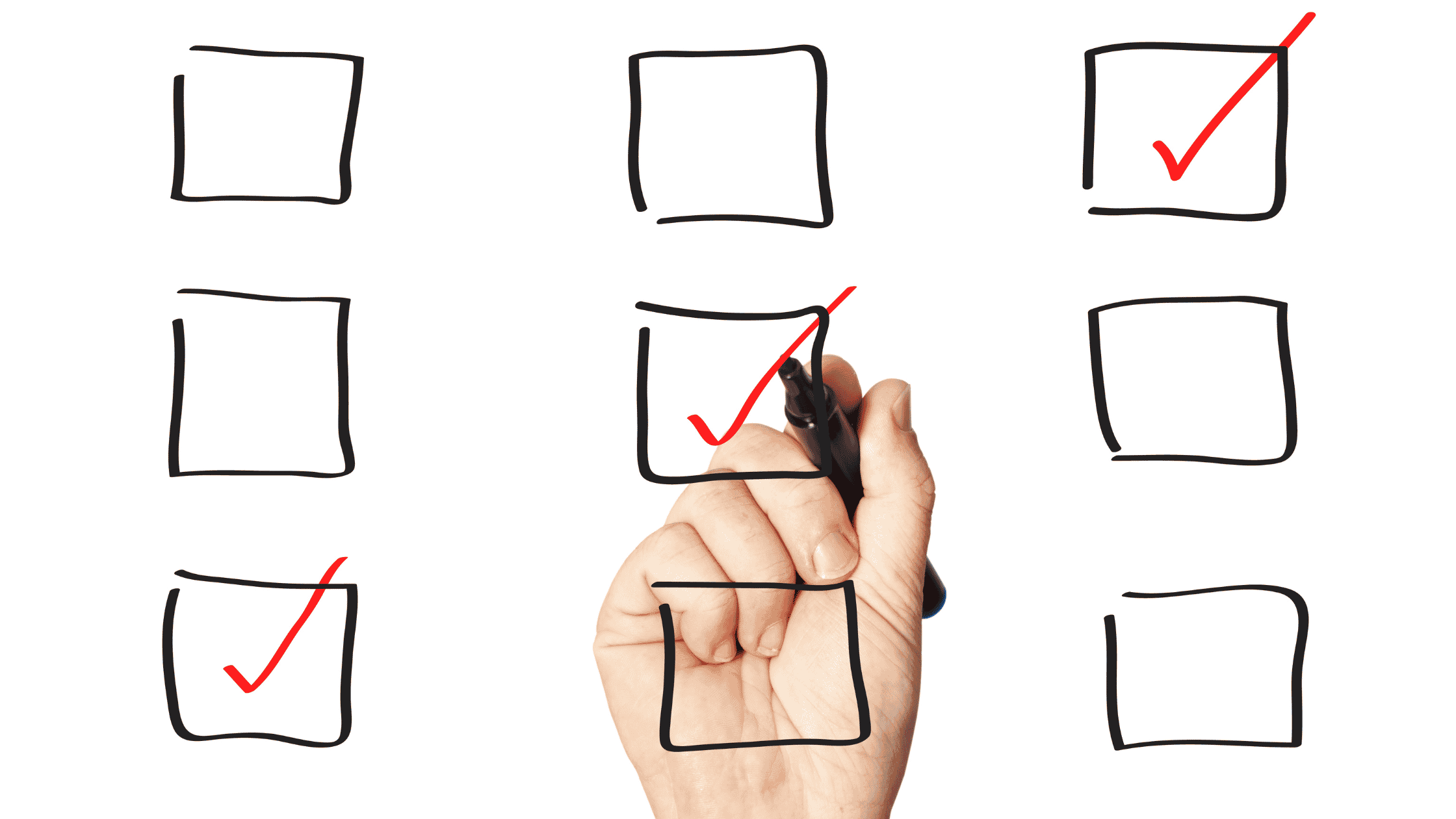What Does the NCAA Recruiting Calendar Mean to Me?
Updated on Oct 30, 2025

Did you know that each sport in college has a different set of rules regarding when a college coach can communicate with recruits?
The NCAA Recruiting Calendar regulates when and how NCAA Division I (DI) and Division II (DII) college coaches can proactively start recruiting student-athletes and “help promote the well-being of prospective student-athletes to ensure competitive equality,” according to the NCAA.
More specifically, recruiting calendars dictate when a potential coach is allowed to initiate contact depending on your sport, age, division level and the type of communication. Failure to follow the rules could result in a violation or the coach (and you!) receiving penalties, and it is important for recruits to familiarize themselves with the NCAA’s sport and division specific recruiting calendars.
To help make sense of the often confusing calendars, Honest Game has outlined the general terms and timelines to help student-athletes and their families understand what to expect as they begin the recruiting process.
Recruiting Buzz Words to Know
Dead Period: During a dead period college coaches are not allowed to have any face-to-face contact with recruits. During this time, the only contact allowed is over the phone by calling or texting, through email or through direct messages on social media.
- What Can/Can’t College Coaches Do During a Dead Period?
- NO in-person contact with recruits and/or their family ANYWHERE!
- CAN NOT watch recruits play.
- CAN NOT invite recruits to campus or see recruits off campus.
- CAN call/text recruits.
- CAN email recruits.
- CAN comment/like social media posts and send direct messages.
- What Can High School Students Do During a Dead Period?
- Work hard in the classroom and download your Honest Game CARE® plan.
- Do research on the college that fits your academics and athletic ability best.
- Update your Hudl profile.
- Reach out to college coaches with a short note and any new film.
- Organize your list of where you plan to compete (club team name, events you’ll attend, HS you play for, game dates) and share with prospective coaches.
- Continue working on strength and endurance.
Quiet Period: During a quiet period, a college coach may only have face-to-face contact with recruits (or their parents/guardians) on the college’s campus. They are allowed to call or email, but they are not allowed to meet in person or watch you play unless the meeting or competition occurs on the college campus.
- What Can/Can’t College Coaches Do During a Quiet Period?
- CAN talk to recruits on a college campus.
- CAN NOT visit a recruit in their home, at their school or at an event.
- CAN NOT watch recruits play live.
- CAN welcome you to campus on an unofficial visit.
- CAN call/text recruits.
- CAN email recruits.
- CAN comment/like social media posts and send direct messages.
- What Can High School Students Do During a Quiet Period?
- Work hard in the classroom and download your Honest Game CARE® plan.
- Do research on the college that fits your academics and athletic ability best.
- Update your Hudl profile.
- Reach out to college coaches with a short note expressing your interest and include any new film.
- Practice talking with coaches on the phone and in person. Create a list of talking points and topics about yourself.
- Prepare a list of questions before you step foot on a college campus.
Contact Period: During a contact period a college coach may have face-to-face contact with recruits (or their parents/guardians) with almost no restrictions. Coaches are allowed to watch recruits compete and visit their high schools, as well as write, email, text or call student-athletes and their parents/guardians.
- What Can College Coaches Do During a Contact Period?
- CAN call/text recruits.
- CAN email recruits.
- CAN comment/like social media posts and send direct messages.
- CAN visit recruits in their home or school.
- CAN watch events live.
- CAN offer official and unofficial visits.
- What Can High School Students Do During a Contact Period?
- Work hard in the classroom and download your Honest Game CARE® plan.
- Do research on the college that fits your academics and athletic ability best.
- Reach out to college coaches with a short note expressing your interest and include any new film.
- Practice talking with coaches on the phone and in person. Create a list of talking points and topics about yourself.
- Prepare a list of questions before you step foot on a college campus.
- Realize coaches watch everything…your interaction with teammates, referees, parents/guardians and opponents.
- Respond to all communication.
Evaluation Period: period of time when a college coach is not allowed to have any off campus face-to-face contact with recruits. However, they are allowed to watch recruits compete and visit their high schools. They are able to call, email, text or direct messages to student-athletes and their parents/guardians on social media.
- What Can College Coaches Do During an Evaluation Period?
- CAN call/text recruits.
- CAN email recruits.
- CAN comment/like social media posts and send direct messages.
- CAN watch events live.
- CAN offer official and unofficial visits.
- What Can High School Students Do During an Evaluation Period?
- Interact in a positive manner with coaches, teammates, referees and opponents.
- Give your best in each practice or competition – this may be the only chance you have to showcase your ability.
- Work hard in the classroom and download your Honest Game CARE® plan.
- Do research on the college that fits your academics and athletic ability best.
- Reach out to college coaches with a short note expressing your interest and include any new film.
- Practice talking with coaches on the phone and in person. Create a list of talking points and topics about yourself.
- Respond to all communication.
Honest Insight: Athletes can always communicate with college coaches through their club or high school coach and send emails and texts to coaches. Don’t worry if you don’t hear back right away, the coach may not be able to engage based on the recruiting calendar restrictions or isn’t currently recruiting your graduation class.
When Can College Coaches Contact High School Athletes?
One of the most common questions families ask is “when can college coaches start contacting their athletes during high school?” For most sports, coaches can begin reaching out to athletes beginning June 15 after sophomore year or September 1 of their junior year of high school.
When a coach is allowed to make contact depends on a student-athlete’s sport, age, division level and the type of communication. Student-athletes and their support team should review the NCAA’s recruiting calendars and the NCAA Guide for the College-Bound Student-Athlete to better understand the breakdown across division levels and sports.
Honest Insight: Coaches will build their recruiting class through online research and speaking with high school and club coaches long before they can engage in phone or in person conversations. Student-athletes should email potential coaches to express their interest and should follow up with a phone call once their sport’s contact period begins.
How Do College Coaches Contact a Recruit?
Recruiting can occur in many ways and families need to know how coaches might reach out to potential student-athletes. Honest Game has rounded up the most common ways college coaches will use to contact recruits and their families.
- Non-recruiting materials: Non-recruiting materials are brochures for camps, questionnaires, NCAA materials and non-athletic recruiting publications. Coaches across all divisions can begin sending athletes non-recruiting material at any time.
- Printed recruiting materials: Any printed document sent to a prospect by a coach through the mail including letters, media guides, posters and game programs.
- Telephone calls: Any real-time exchange of someone’s voice including voice calls, FaceTime, videoconferencing and video chat. Emails are not considered a phone call.
- Electronic transmissions: All forms of transmitting text and images electronically. This includes text messaging, email, faxes, social media messages or instant messaging (ie. Google Chat).
- Off-campus contact: Contact occurring off a college campus such as a home visit, high school, event space.
- Unofficial visits: Any visit to a college campus paid for by the student-athlete or their guardians. The only expenses a college-bound student-athlete may receive from a college during an unofficial visit are three tickets to a home sports event.
- Official visits: Any visit to a college campus by a college-bound student-athlete and/or their parents/guardians paid for by the college is an official visit. During an official visit the college can pay for transportation to and from the college for the student-athlete, lodging and three meals per day for the student-athlete and his or her parents/guardians, as well as reasonable entertainment expenses including three tickets to a home sports event.
Honest Insight: If you’re interested in a school, official visits can be the last piece of the puzzle to help you understand if it’s your best college fit.
When Can NCAA Division II Coaches Contact Recruits?
The NCAA recruiting rules for DII schools are slightly relaxed compared to DI.The rules are the same across all sports including a July 15 start-date after a student-athlete’s sophomore year. Coaches can begin sending recruits printed recruiting materials and call athletes, as well as conduct off-campus communications with recruits and their families. Official visits may start June 15 after a student-athlete’s sophomore year and may take unofficial visits at any time.
Additionally, DII does not have any rules on the number of evaluations per student athlete. College coaches cannot contact you on competition or practice days until your event is finished, and you are dismissed by the proper authority (like your high school coach or athletic director). Also, during a contact period college coaches can make only one visit per week to your high school.
When Can NCAA Division III Coaches Contact Recruits?
Similar to NCAA eligibility rules for DII schools, the recruiting rules for DIII sports are the same for all of their programs. These rules include no limit on phone calls or digital communications, as well as receiving printed recruiting material. DIII coaches may begin off-campus contact after the athlete’s sophomore year and student-athletes can begin taking official visits after January 1st of their junior year. Student-athletes can take an unlimited number of unofficial visits at any time.
What Are the Recruiting Rules for NAIA Schools?
There are no recruiting calendars for student-athletes looking to play at an NAIA school, meaning coaches can freely contact prospective student-athletes at any time. As with NCAA DIII, there are no “dead periods” or “quiet periods”, the recruitment process is less formal and more of an ongoing conversation than a rule-governed contract negotiation.
Students are permitted a maximum of two days of tryouts throughout their entire athletic career. If a school has a policy for reimbursing all students for such visits, the same can be applied to you as a prospective student-athlete.
What Are the Recruiting Rules for JUCOs/Community Colleges?
Two-year colleges (commonly known as a community college, junior college or “JUCO”) can not offer any inducements or gifts to attend; however, they may pay for one visit to their campus (no more than two days and two nights).
While recruiting a potential student-athlete on campus, a college representative may purchase meals for the student-athlete. In order to receive an official recruiting visit by a National Junior College Athletic Association (NJCAA) college, a prospective student-athlete must have completed their junior year in high school. While most community colleges in the country are overseen by the NJCAA, two-year schools in the state of California are governed by the California Community College Athletic Association (CCCAA).
What to Include in Your Recruiting Toolkit
Preparation before the communicating with a college coach is key! You never know when a prospective coach might come calling. Having your recruiting materials in order and knowing what to expect when speaking with coaches can lead to greater success in the end. Student-athletes should have the following readily available to share with college coaches and recruiters:
- Your Honest Game CARE® plan and/or unofficial high school transcript
- 3 – 4 minute highlight reel with a link to your Hudl profile
- High school and club coach contact information
- Upcoming competition schedule (high school season, club season and future recruiting camps/showcases)
- A 1 page PDF profile or resume including athletic and academic honors
Before talking with college coaches, it’s important to prepare and have a plan of the best things to mention (and ask). Check out Honest Game’s blog on “How to Talk with College Coaches” to learn more about how to show your best self when talking with prospective schools and their coaching staff.
Honest Insight: Be ready when the phone rings! Give the coach your full attention – this could be the only call, or one of many. You don’t know!
We recommend reviewing this information with your family and school counselor to ensure that you are checking off all the boxes to become and remain eligible to compete in your sport at the next level.
Have questions about the recruiting process or need help assembling your recruiting toolkit? Honest Game Counselors are here to help take the guesswork out of academic eligibility and are available to provide one-on-one assistance to support student-athletes in navigating post-secondary opportunities athletically and academically. Schedule a time to meet virtually with our experts.

As a former Senior Associate Athletic Director at the NCAA Division I level and with more than 20 years of experience in collegiate athletics, Courtney has advised thousands of student-athletes through the college recruiting and eligibility process for college sports. Interested in virtual counseling with Courtney? Sign up here.



